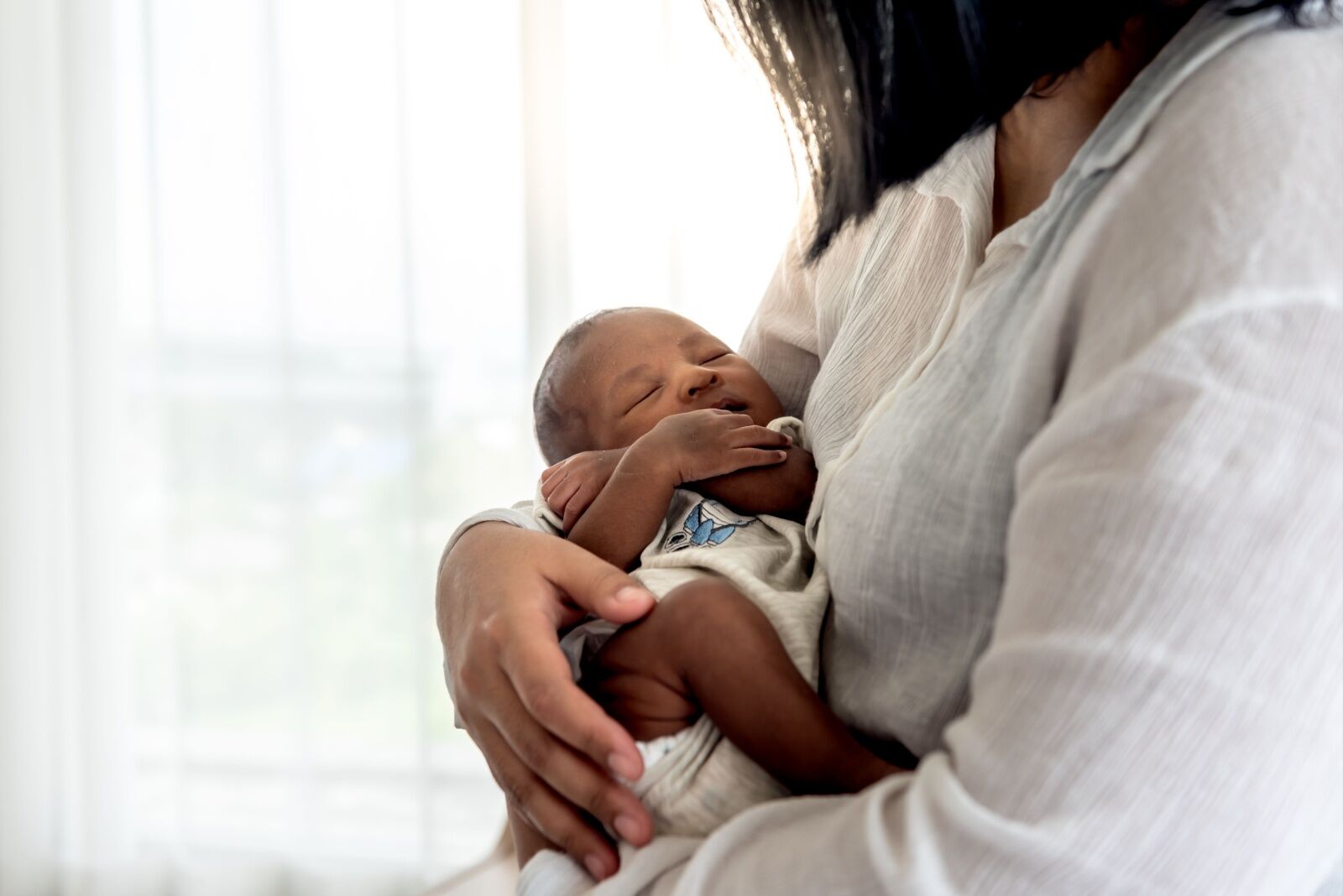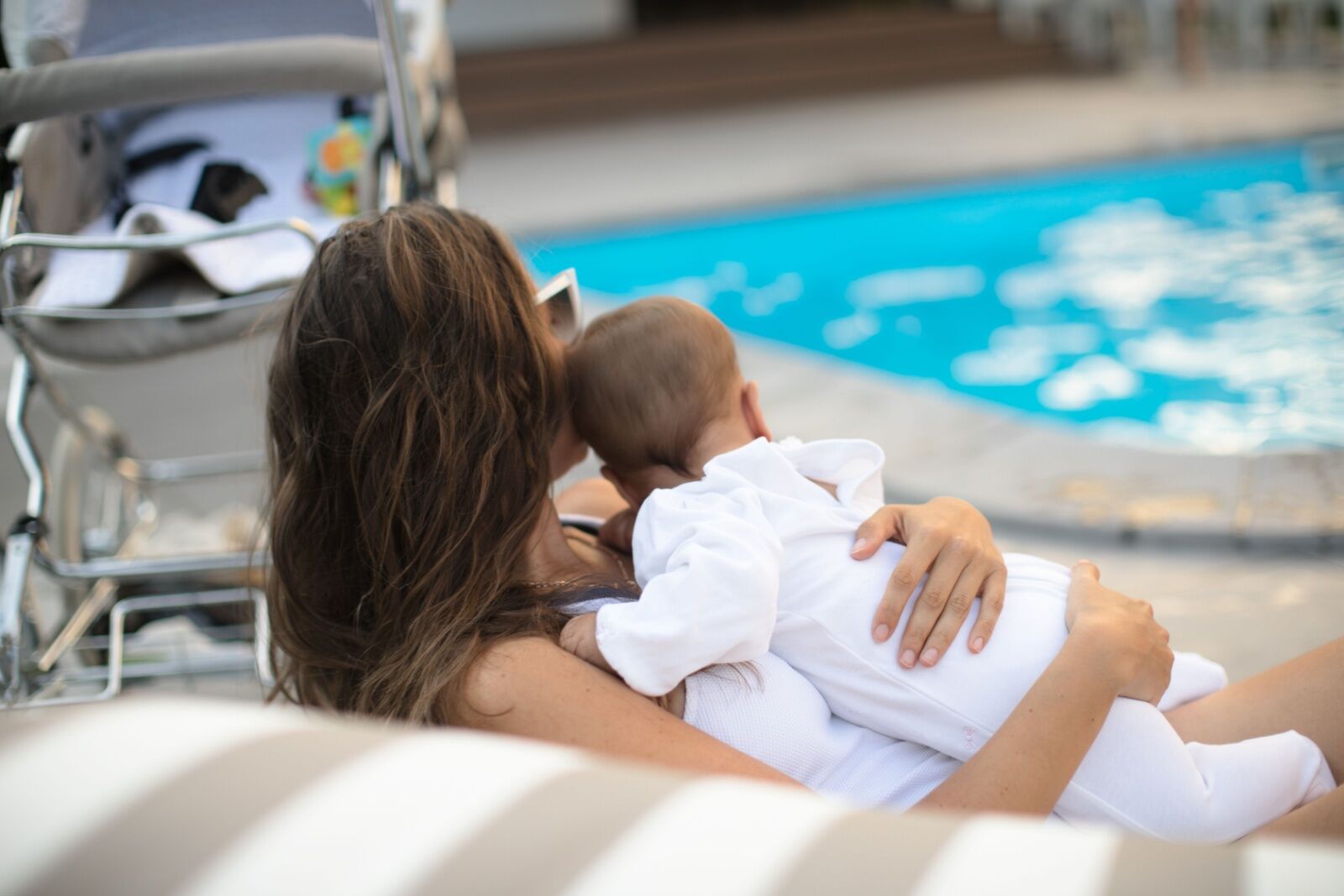Giving birth, no matter how many times you’ve experienced it, is a marathon, not a sprint. It’s a physically demanding experience, often accompanied by physical injury, stitches, and sleep deprivation. While the weeks and months after welcoming a new baby into your home are often filled with lots of happiness, they’re also extremely taxing and extremely stressful, especially for new moms, who have to be caregivers immediately after going through the exhausting process of childbirth.


New Mom? A Postnatal Retreat Might Make a Great Next Trip.
The American College of Obstetricians and Gynecologists makes it clear: “The weeks following birth are a critical period for a woman and her infant, setting the stage for long-term health and well-being.” Unfortunately, the United States falls short when it comes to supporting new mothers in this crucial postpartum period. In the US, the average hospital stay post-delivery is a mere 24-48 hours, meaning that many women leave the hospital or birth center while they still need significant care, and without much guidance for navigating the initial weeks of newborn care. This is part of the reason the US currently ranks 59th in the world for maternal mortality. The US also has no required paid maternity or paternity leave.
In stark contrast, many Asian cultures view postnatal care as a cornerstone of well-being for both mothers and new children. In South Korea, 80 percent of new mothers choose to take postnatal retreats, called sanhujori, despite the $2,000 to $5,000 price tag. These facilities offer new mothers a nurturing space to recover for about two weeks, with pampering treatments, bespoke parenting education, and a dedicated support staff.
Fortunately, this trend in prioritizing womens’ health after childbirth is beginning to take root in other parts of the world. Postnatal retreat centers are popping up across the US and internationally, offering a much-needed haven where mothers, parents, and babies can go to start the next chapter of their lives on a confident, healthy footing.
Postnatal retreats fill a skills and support gap missing for most parents

Photo: Anatta_Tan/Shutterstock
The rise of postnatal retreat centers can be attributed to the personal experiences and observations of passionate women who wanted to create change. Boram Nam, who co-founded her eponymous Boram Postnatal Retreat in New York City, battled postpartum depression after the birth of her second child, all while healing from a difficult C-section. “It took me two years to fully recover from it,” she explains. Her name, and that of the retreat center, fittingly translates to “something fruitful after hard work,” reflecting her desire to help other mothers avoid similar struggles.
Esther Park of Ahma & Co in Orange County, California, was also inspired by the postnatal practices in her native South Korea. And after witnessing friends and colleagues struggle in the aftermath of childbirth, she headed to an MBA program with the sole mission to launch a retreat. Similarly, nurse Jennifer Darwin founded San Francisco’s Village Postnatal Retreat Center after witnessing firsthand the struggles of new parents, and Julia Kim opened Sanu Postpartum Retreat in Washington, DC, after feeling helpless following the birth of her child despite months of research.
The common force behind all of these women is a deep desire to bridge the gap in support for mothers during such a critical time. Currently, in the US, only about 56 percent of mothers take any kind of parent education class, and even fewer do any kind of postnatal recovery. Less than 60 percent of new mothers have even a single postpartum follow-up or care visit, let alone any kind of extended recovery plan. Anywhere from 20 percent to 40 percent of women in research surveys reported that services like infant feeding classes or assistance with maternal recovery would have helped lower their stress in the weeks and months after giving birth.
It’s a gap that exists outside the US as well. To the north, Hana McConville of the Alma Care retreat in Toronto, Canada, leaned on her personal experiences to influence the structure of her postnatal recovery center. After the birth of each of her children, she practiced the Chinese tradition of zuo yue ze, or “sitting the month” – spending a month recovering and relaxing, working primarily on her own healing. She witnessed the positive impact of that practice, and saw the stark contrast compared to her friends in Canada who didn’t have time to “sit the month.”
In France, Get Your Mojo Back, Sex, Pleasure and Intimacy After Birth author Clio Wood founded the &Breathe center after dealing with birth trauma, postpartum depression, and breastfeeding issues after the birth of her daughter. “I found that there was very little support for new mums that didn’t revolve around the baby,” she says, and explains that she started the postnatal retreat to create the kind of space she couldn’t find. “Nothing like that existed, so I created a retreat to do just that.”
Who can attend a postnatal retreat?

Parents, moms, dads, and sometimes, even other children, are welcome to attend. Photo: NDAB Creativity/Shutterstock
One of the biggest questions surrounding postnatal retreats is who qualifies to attend. The answer is reassuringly broad: most retreats welcome any person who has given birth within a specific window, typically ranging from six to 12 weeks postpartum. Fathers are welcome and encouraged to attend, too. But there are some exceptions. For example, Clio’s &Breathe welcomes families of children up to preschool-age.
A common misconception is that these retreats are solely for first-time moms, but postnatal retreat centers are open to any mother or birthing person, regardless if it’s their first child or their fifth. There’s also flexibility on when parents attend prenatal retreats. Alma Care in Toronto welcomes both mothers and children directly from the hospital, and mothers who are several months into parenthood and may just need to fight burnout, catch their breath, and receive support with sleep training.
While some of these retreats may seem indulgent, they’re not just luxurious spa getaways or breaks from parenting duties. “Once you become a parent, you never get a break,” explains Nam of Boram Postnatal Retreat. “Our retreat is a chance for moms to receive support, slow down, bond with their new baby, and learn from experts so that they can feel more confident at the start of their journey as a parent.”
What happens during a postnatal retreat?

Photo: Kzenon/Shutterstock
So, what can you expect at a postnatal retreat? Many emphasize an around-the-clock care model, including a dedicated nursery staffed by professionals who can care for your newborn while you and your partner get much-needed rest. Pelvic floor health is also a priority, with many facilities offering physical therapy sessions to strengthen this crucial system, especially as it gets taxed during the birth process.
Support and educational classes from experts is another hallmark of most retreats, with attendees able to take workshops led by lactation consultants, meet with instructors teaching infant CPR and safety training, and connect with early childhood education specialists, doulas, nutritionists, nurse practitioners, and more. The idea of having so many different types of experts and lessons is to ensure attendees received a holistic education focused on both newborn care and personal recovery.

Most postnatal retreats offer chances for much-needed pampering and comfort. Photo: AbElena/Shutterstock
Comfort and pampering, of course, are also part of the equation – something that seems fair, given what a woman’s body goes through while pregnant and during birth. Guests can expect luxurious suites equipped with everything new parents need, nourishing meals, and spa treatments like massages and facials. But beyond these indulgences, postnatal retreats can foster a sense of community by offering parent workshops and lounges where attendees can connect with other families and build connections and communities they can lean on well after their departures. This can be especially helpful for new moms who don’t have many friends or family members with children.
Of course, these retreats aren’t just for mothers or birthing partners. Surveys have found that a quarter of new dads feel isolated and left out during the postnatal period, and that a large percentage of new dads also feel unprepared for their roles as parents (and as caregivers for mother), contributing to physical stress and potential relationship strains. Retreats offer workshops to relieve these issues, and much-needed chances for dads to bond with other dads.
Some retreats, like &Breathe, sponsor date nights for couples to reconnect, which are often the first time couples have been out alone since their baby arrived.
Postnatal support has short- and long-term benefits

Photo: bbernard/Shutterstock
Most supporters of postnatal retreats think that prioritizing postnatal care, especially through retreats, has benefits that last beyond the immediate postpartum period. At a minimum, they start normalizing a more realistic counterpoint to the societal narrative around motherhood.
“The ‘cult of motherhood’ places so much emphasis on selflessness and always giving to and providing for others,” says Wood of &Breathe. “Actually, as a mother [and birthing person], you deserve just as much care. But we often feel a lot of shame and guilt for needing and taking this.”
Investing in postnatal care, particularly addressing pelvic floor health, can have a profound impact on a mother’s long-term well-being. According to the National Institutes of Health, nearly a quarter of all women in the US develop pelvic floor issues after giving birth. These issues can range from urinary and fecal incontinence to back pain to organ prolapse.
“Absolutely everyone should have access to a women’s health physiotherapist in the postnatal period,” says Wood. But in the US, only a very small percentage of people who give birth have access to physical therapy, despite the fact that studies have shown it could save lives and speed up the recovery process – which benefits not just mothers, but everyone in the family. Postnatal retreats also provide crucial emotional support during a vulnerable time. Early intervention and strong support networks are proven to reduce the frequency of postpartum depression and help mothers begin to feel like themselves again.
“A lot can happen in the immediate postpartum, and we help people navigate what is normal,” explains Darwin of the Village Postnatal Retreat Center. “We educate parents on signs and symptoms that should be reported to their providers, and do the same for the babies through daily weigh-ins, assessing sleeping patterns, and feeding patterns, etc.”
Of course, the costs of a postnatal retreat can be a barrier for some. The Village starts at $890 a night with a three-night minimum, and Sanu is between $835 and $880 per night. In Canada, Alma Care is between $850 and $1,000 per night, and &Breathe stays start at £1250 (about $1,590) per adult for a six-day retreat. Most US insurance companies don’t cover the cost, but some postnatal retreats will provide you with an itemized bill you can submit to try to get some parts of the retreats reimbursed, such as physical therapy. Ideally, the knowledge and skills gained in a retreat will lead to fewer hospital readmissions and unnecessary doctor visits, reducing some future medical costs.
While the rise of postnatal retreats is a positive step for women, the reality is that this type of care is far from universal. But for now, the growth in their availability and the number of women and families who attend one will hopefully begin to change the way they’re viewed in society — not as an indulgence, but as an essential investment in the health and happiness of every growing family.